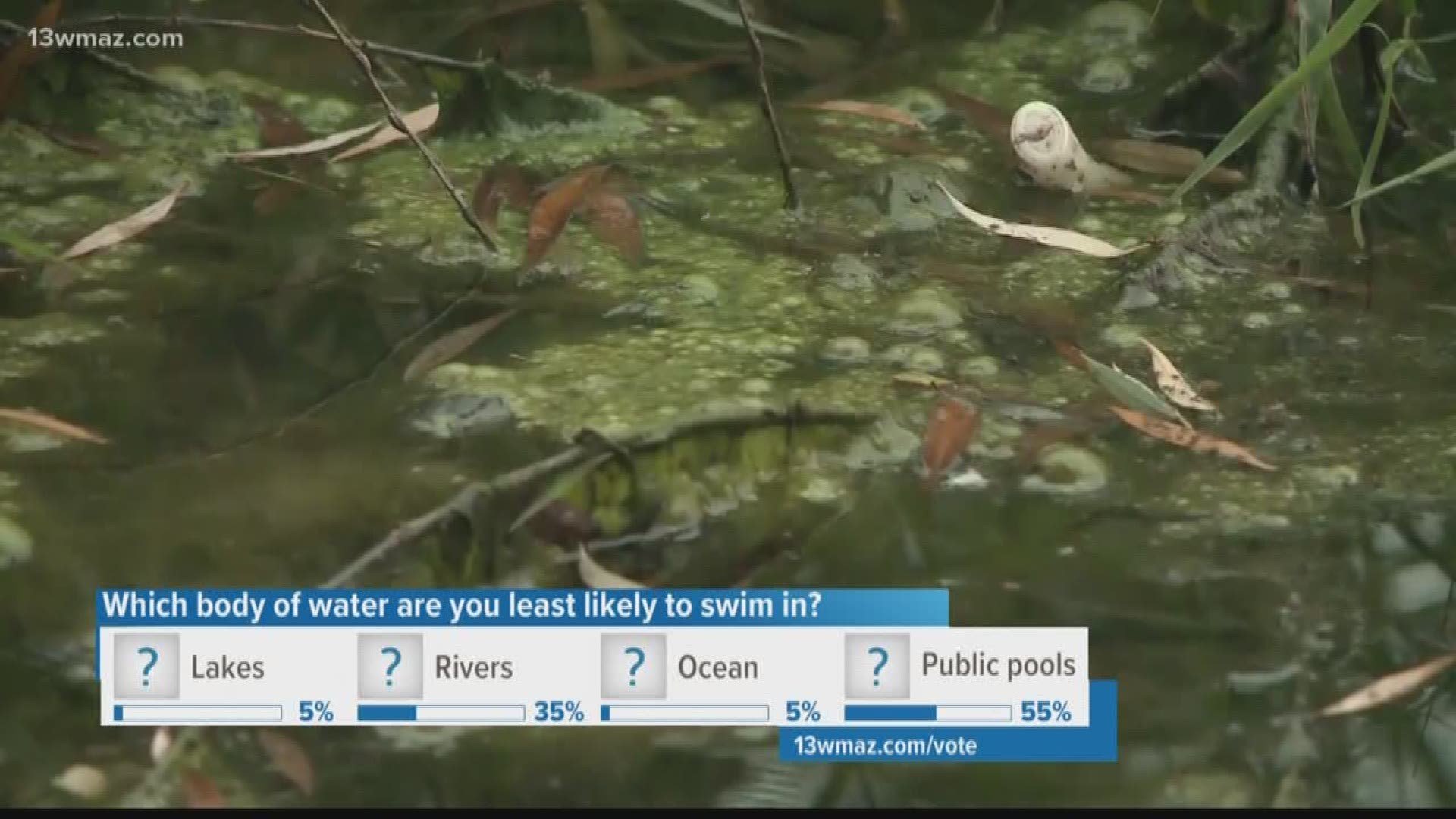MACON, Ga. — Who doesn’t love bringing their dog out to the lake or river for a swim, especially on a hot summer day?
But it’s these hot days that just may be creating the perfect storm of ingredients to form blue-green algae, which can be deadly if a dog swallows it.
It’s keeping some dog owners away from the water, like Jackson Griner and his 10-week-old puppy, Maverick.
“He loves going around and exploring new things and going on different adventures," says Griner.
But, right now, most of those adventures are inside.
“I want him to be able to go swimming and play wherever he wants to, but I don’t want him to be hurt by any sort of algae," says Griner.
This summer, dog deaths possibly linked to blue-green algae have been reported in Georgia and North Carolina.
Dr. Vernard Hodges is a central Georgia veterinarian who says if your dog swallows that algae, it could be fatal.
“They could be dead in a matter of 30 minutes. It’s a really fast-acting toxin," says Hodges.
Hodges says blue-green algae is formed when it’s very hot and there are lots of nutrients in a body of water.
“If you run across water that looks like it has this floating green stuff, almost like pea soup, stay away," says Hodges.
If your dog does ingest a toxic batch, Hodges says they may suffer vomiting, seizures, and diarrhea.
“Not all of these blue-green algae blooms are toxic -- most of the time, they probably aren’t toxic -- but who wants to take the chance of their dog being in that one? So if you see it looking that way, stay away," says Hodges.
So, for now, Jackson and Maverick are heeding Dr. Hodges' advice, staying out of murky waters, and keeping each other company.
“I want to make sure that he’s safe and healthy as possible while he’s young so that as he grows up, he’s able to be safe, long-term," says Jackson.
Hodges says if you think your dog has swallowed the algae or is suffering any of the symptoms, take them to the vet immediately. You can also try making your dog throw up to release the toxins from inside their body.

